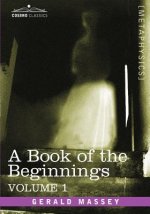
Livrare
Consilier de cumpărături





Nu se pretează? Nu contează! La noi puteți returna bunurile în 30 de zile
 Voucher cadou
orice valoare
Voucher cadou
orice valoare
Cu un voucher cadou nu veți da greș. În schimbul voucherului, destinatarul își poate alege orice din oferta noastră.
From Beethoven To Shostakovich - The Psychology Of The Composing Process
 engleză
engleză
 136 b
136 b
30 de zile pentru retur bunuri
Ar putea de asemenea, să te intereseze


From Beethoven To Shostakovich- The Psychology of the Composing Process By MAX GRAF. Contents include: PART I. SOURCES OF MUSICAL IMAGINATION I. The Magic in Music 3 II Artistic Fancy 23 III. Classical and Romantic Fantasy 35 IV. The Erotic Forces of Fantasy 52 V. The Subconscious 77 VI. Forms and Figures in the Subconscious 118 VII. Childhood Memories 155 VIII. External and Internal Experiences 177 IX. Retrospect The Origin of Beethovens Ninth Symphony 221 PART II. THE WORK. OF MUSICAL FANTASY X Organizing the Musical Fantasy 245 XL Productive Moods 273 XIL Musical Conception 308 XIII. The Beginning of Critical Work The Sketches 329 XIV, The Composition Process 377 XV, Retrospect The Path of Musical Imag ination The Musical Work of Art 448 Index 462. PART I. Sources of Musical Imagination. CHAPTER I. THE AVERAGE music lover, listening to one of the great music works, does not give a thought to how these compositions may have originated. He enjoys their grand musical constructions, the sym phonies, sonatas, chamber music, songs and choruses. He derives pleasure from the tonal beauty and from the musical expression and feels his whole being elevated, his sensual powers augmented and his entire personality transformed. The world in which he ordinarily moves, and which is the scene of his activity, seems to vanish. He feels himself transplanted to another world wherein every thing that would normally catch his interest ceases to exist his work, his human relations, his worries and hopes and fears, his plans and his everyday sentiments. In this new and exalted world there are only sound ing forms, and within the tones only the lustre of beau ty a lustre that has always been sensed by all susceptible individuals by some more clearly than by others as a light coming from a loftier region, Even those who seek in the enjoyment of music mere ly the sensual pleasure of sounds, still sense in music firm order and a lawful form which elevate the simplest melody far above the tumult of everyday life. The attitude of musical audiences in the concert hall demonstrates most effectively the transformation of a crowd of people from its commonplace conduct to a new form of existence. Before the program starts, the audiences gossip and discuss their private affairs they laugh, exchange pleas antries., flirt, tell one another vicious or witty or mean ingless matters about life and society. As yet there is no audience in the concert hall, and no unity only groups or individuals. Then the conductor or the soloist makes his appear ance on the stag cmd as if at a given command, the conglomeration of listeners changes to a single audience that listens as if with a single ear. At the first sound of a tone or chord the attention of thousands converges in one direction. The listeners are transformed into a single being whose entire emo tional life is changed. It f seems as though the souls of thousands would merge fn a new, uniform soul that permits music to penetrate. There is a new tension in the souls of all those present sensations take on a higher degree of warmth emotions move more rapidly than in ordinary life. At this moment an event takes place in the concert halls similar to that in Catholic churches when, at the moment of Transubstantiation the music becomes si lent as the little bell rings through the high room. At this point the pious kneel down as the priest raises the monstrance, and out of hundreds of devout there emerges a single congregation in whose collective soul lives the identical mystic awareness of the presence of their God. One can observe something similar at every theatrical show, every mass meeting and at every sports event the transformation of a gathering of people, and of life and sentiments of thousands into a new, more strongly braced, intensified emotion...
Informații despre carte
 engleză
engleză




 Cum să cumpăr
Cum să cumpăr

























